⚖️ Ethics: Essential Concepts for Reading Comprehension
Ethics explores fundamental questions of right and wrong, fairness, and justice in human actions. In reading comprehension passages, ethical debates often serve as the backbone for discussions on technology, business, environment, and societal changes. Understanding ethics enhances the ability to identify arguments, analyze dilemmas, and evaluate consequences, which is critical for grasping the nuances of complex texts.
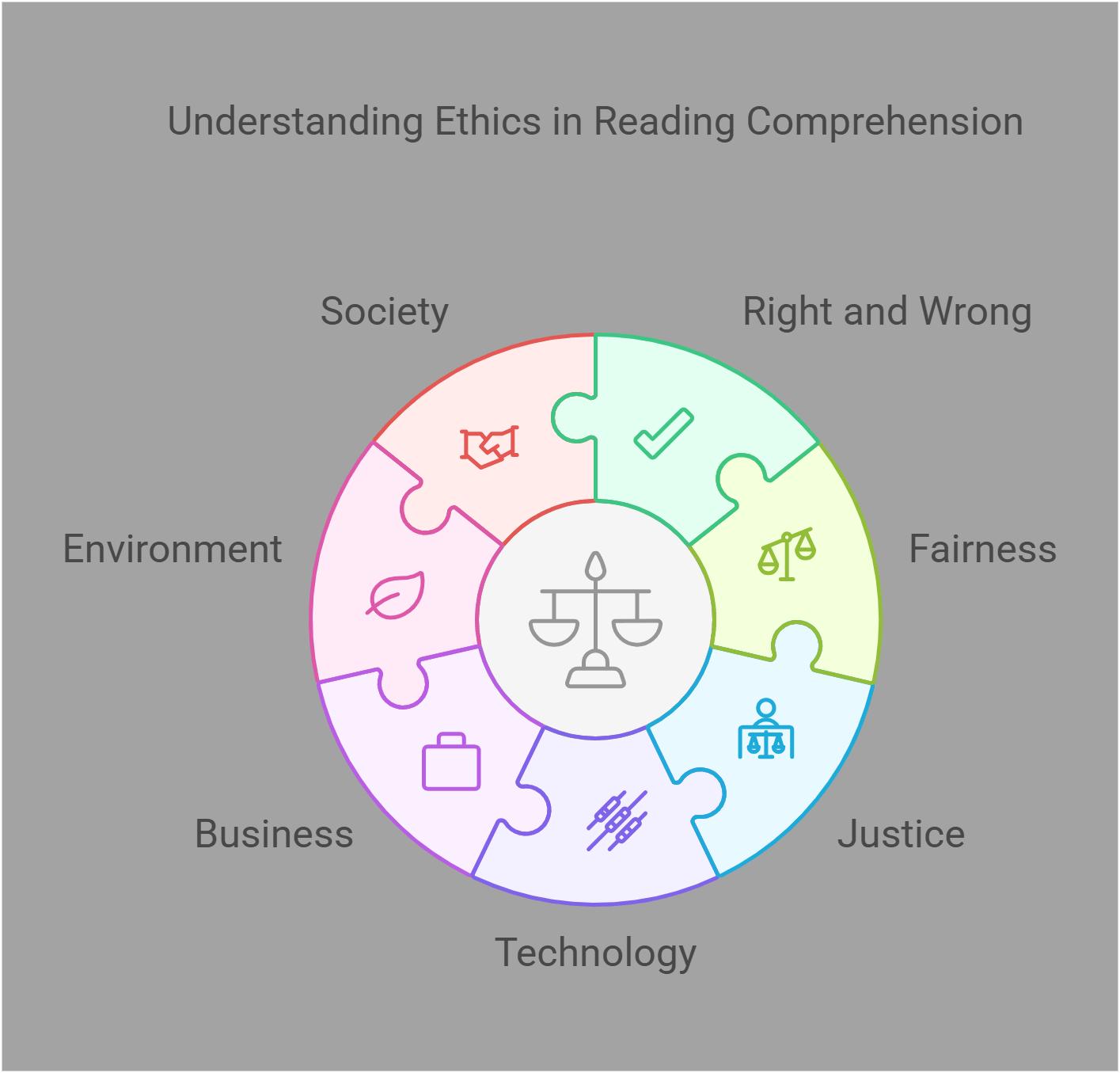
📋 Overview
In this guide, we’ll explore these key ethics-related concepts:
- Algorithmic Bias
- Digital Privacy
- Corporate Ethics
- Environmental Ethics
- Biotechnology Ethics
- Moral Philosophy
- Bioethics
- Professional Ethics
- Social Responsibility
- Ethical Dilemmas
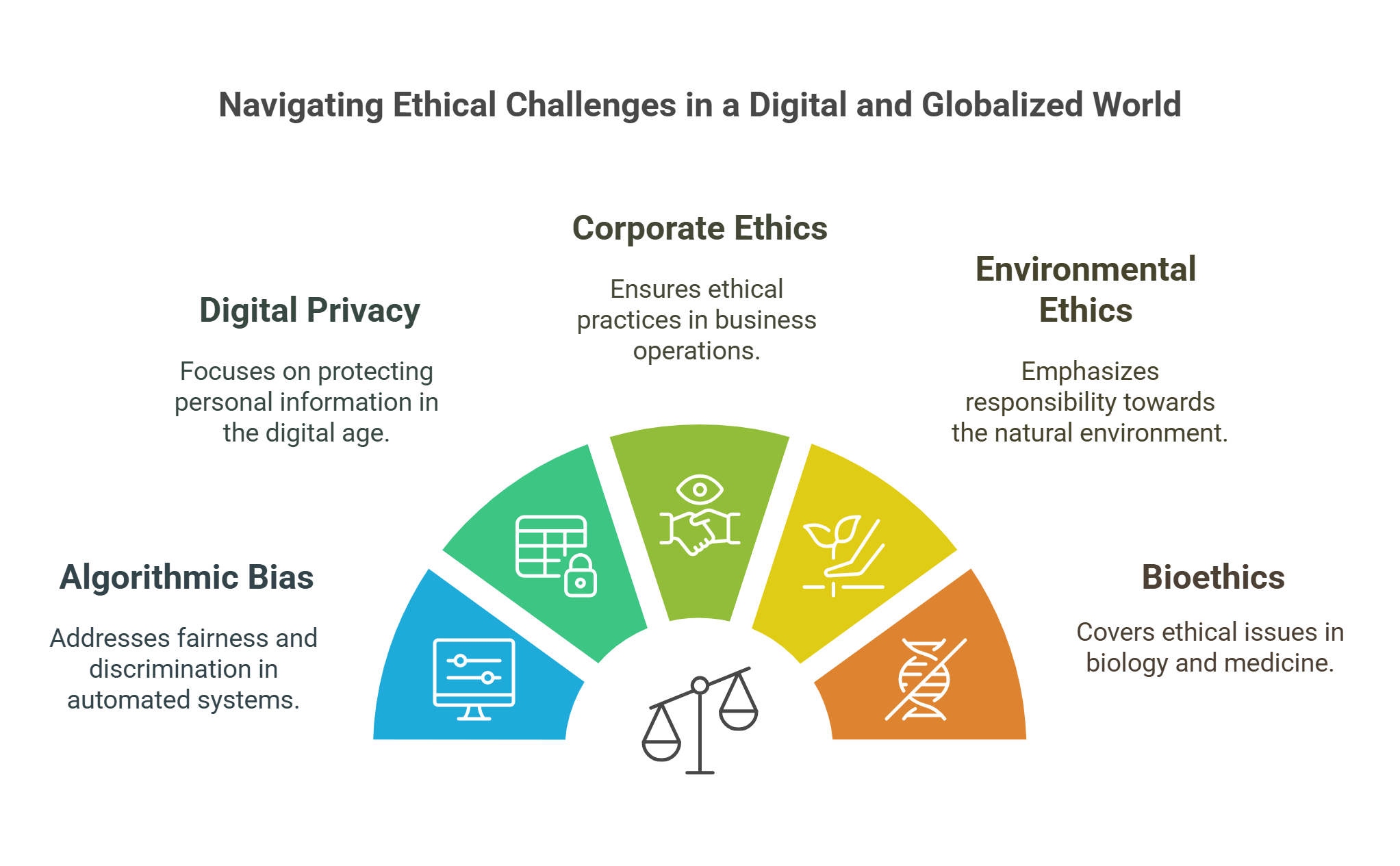
🔍 Detailed Explanations
1. Algorithmic Bias
Algorithmic bias arises when AI systems produce unfair outcomes due to biased data or flawed design. For instance, facial recognition systems sometimes struggle to identify people from certain ethnic groups accurately, reflecting biases in the training data. The concept is crucial in debates about fairness and equity in technological applications.
- AI systems and decision-making.
- Bias due to flawed datasets.
- Impact on fairness and equity.
- Examples include hiring algorithms and facial recognition.
- Need for accountability and transparency.
Explained Simply: Imagine a teacher always choosing the tallest kids for games because their list only has tall kids’ names. If the teacher used a list with everyone’s name, the choices would be fairer. AI needs “fair lists” to make good decisions.
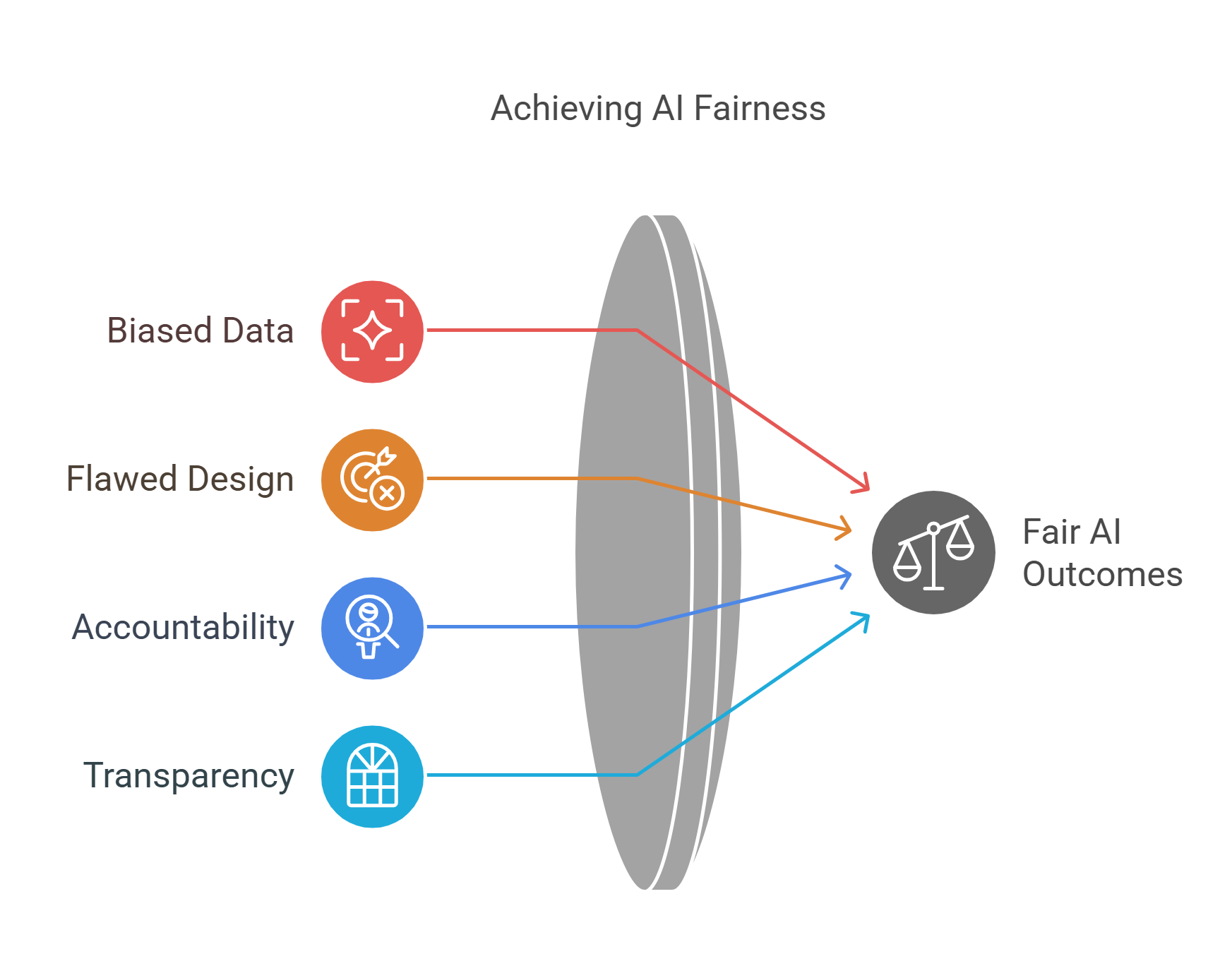
2. Digital Privacy
Digital privacy concerns the right to protect personal data and control how it is collected, stored, and shared. In an age dominated by social media, online transactions, and data-driven technologies, questions about consent, data breaches, and surveillance are central to ethical debates. Digital privacy is especially significant in passages discussing technology and individual rights.
- Protection of personal data.
- Ethical concerns over surveillance and consent.
- Challenges with data breaches and cybersecurity.
- Relevance in debates on AI, IoT, and big data.
- Implications for freedom and autonomy.
Explained Simply: Imagine if someone read all your messages and shared your secrets without asking. Digital privacy is like a lock on your diary that only you have the key to.
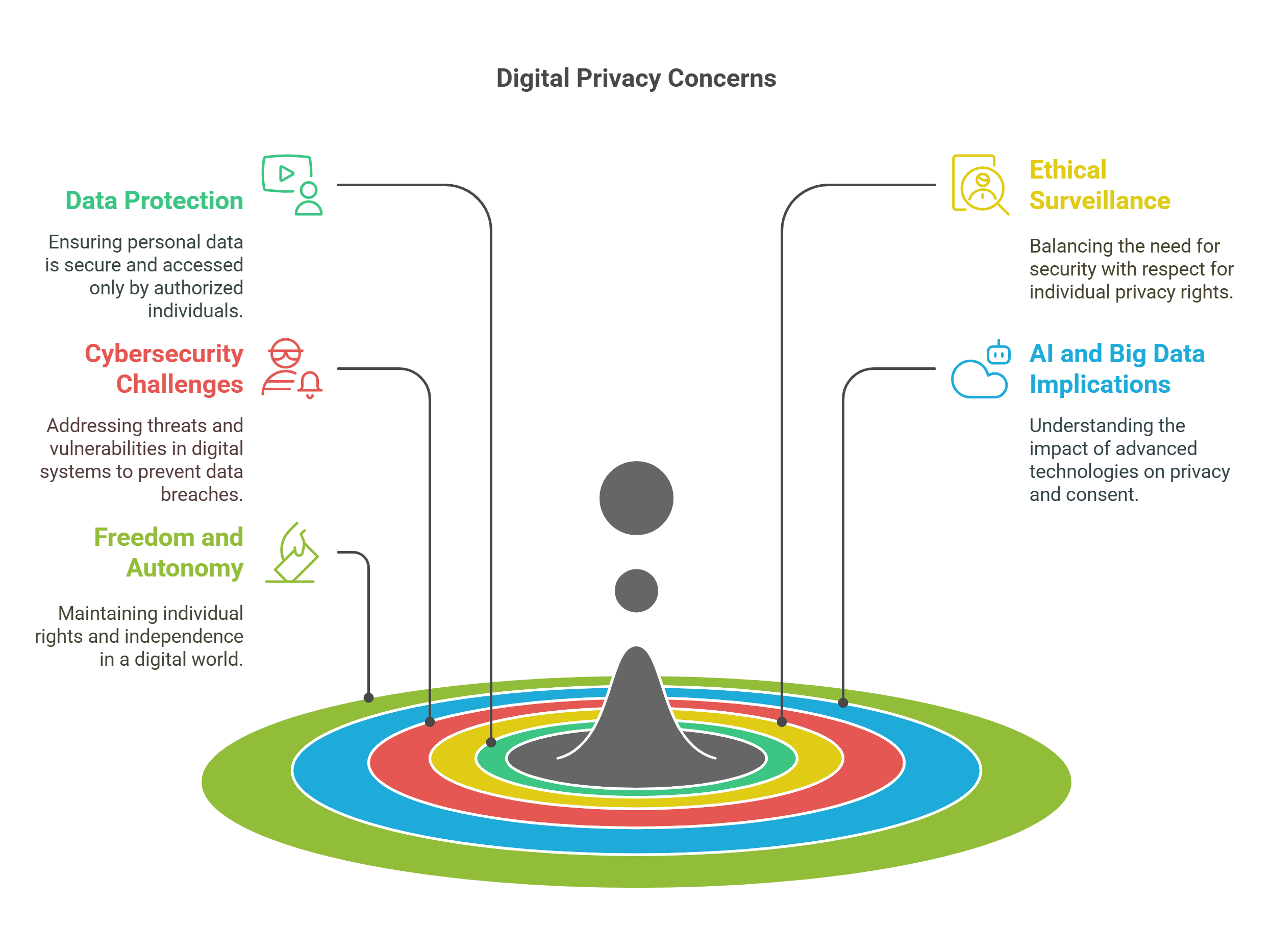
3. Corporate Ethics
Corporate ethics refers to the moral principles guiding business practices. This includes issues like fair labor practices, honest marketing, environmental responsibility, and anti-corruption measures. In reading comprehension passages, corporate ethics often ties into broader themes of accountability, profit versus principles, and the role of businesses in society.
- Moral principles for businesses.
- Includes fair labor, sustainability, and transparency.
- Balances profit-making with social responsibility.
- Relevance in corporate scandals and public trust.
- Impacts consumer behavior and regulations.
Explained Simply: Imagine if a lemonade seller used bad lemons but told everyone they were fresh. That’s unfair. Corporate ethics is about businesses doing the right thing, even when no one is watching.
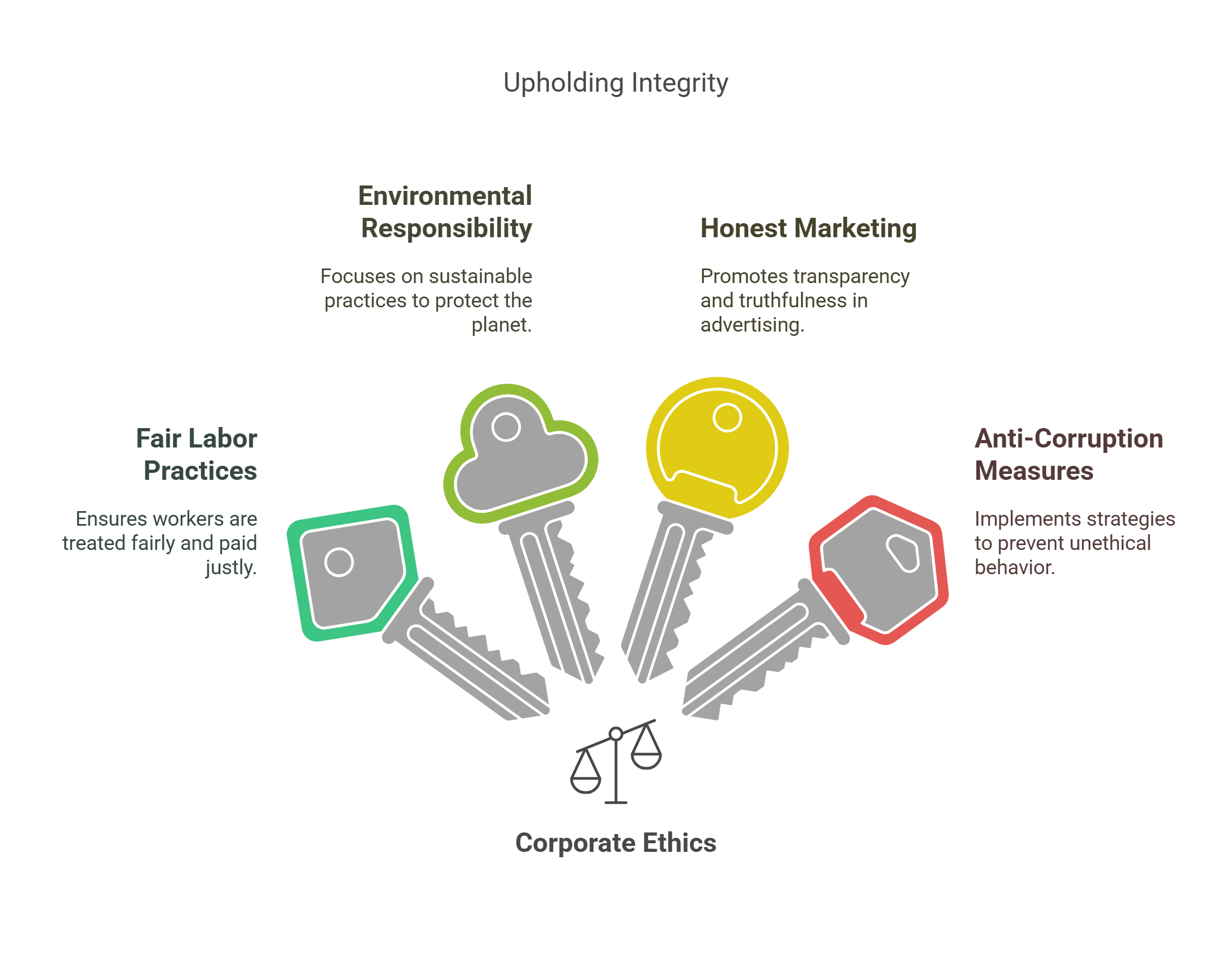
4. Environmental Ethics
Environmental ethics examines the moral relationship between humans and the natural world. It involves debates about sustainable development, conservation, and the ethical implications of climate change. Reading passages might explore these ideas to challenge readers to consider the balance between human progress and environmental preservation.
- Moral duties toward nature and ecosystems.
- Balances human development with conservation.
- Includes climate change, resource use, and biodiversity.
- Challenges anthropocentric views of the world.
- Influences policies and global agreements.
Explained Simply: Imagine if you borrowed a toy and broke it before giving it back. Nature is like a borrowed gift—we need to take care of it for others to enjoy.
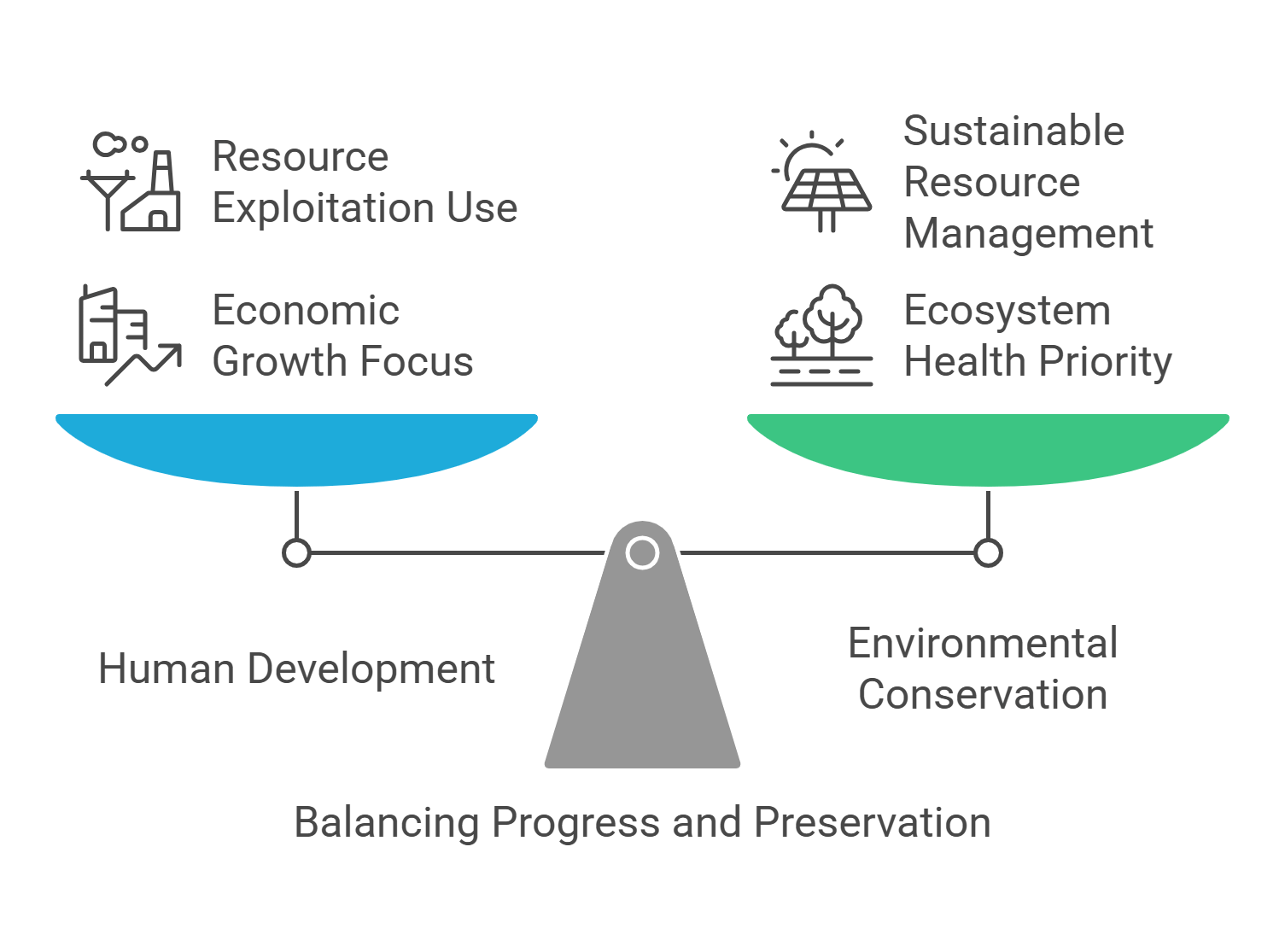
5. Biotechnology Ethics
Biotechnology ethics deals with the moral implications of using technology in life sciences. Topics like genetic engineering, cloning, and stem cell research spark debates about the limits of human intervention in natural processes. These discussions often appear in reading passages that explore science and its societal implications.
- Ethical concerns in genetic engineering and cloning.
- Balances scientific progress with moral boundaries.
- Debates on human and animal experimentation.
- Impact on medicine, agriculture, and biodiversity.
- Raises questions about “playing God.”
Explained Simply: Imagine if you could choose to make all flowers blue forever. Would it be fair to other people who like different colors? Biotechnology asks similar questions about fairness and change.
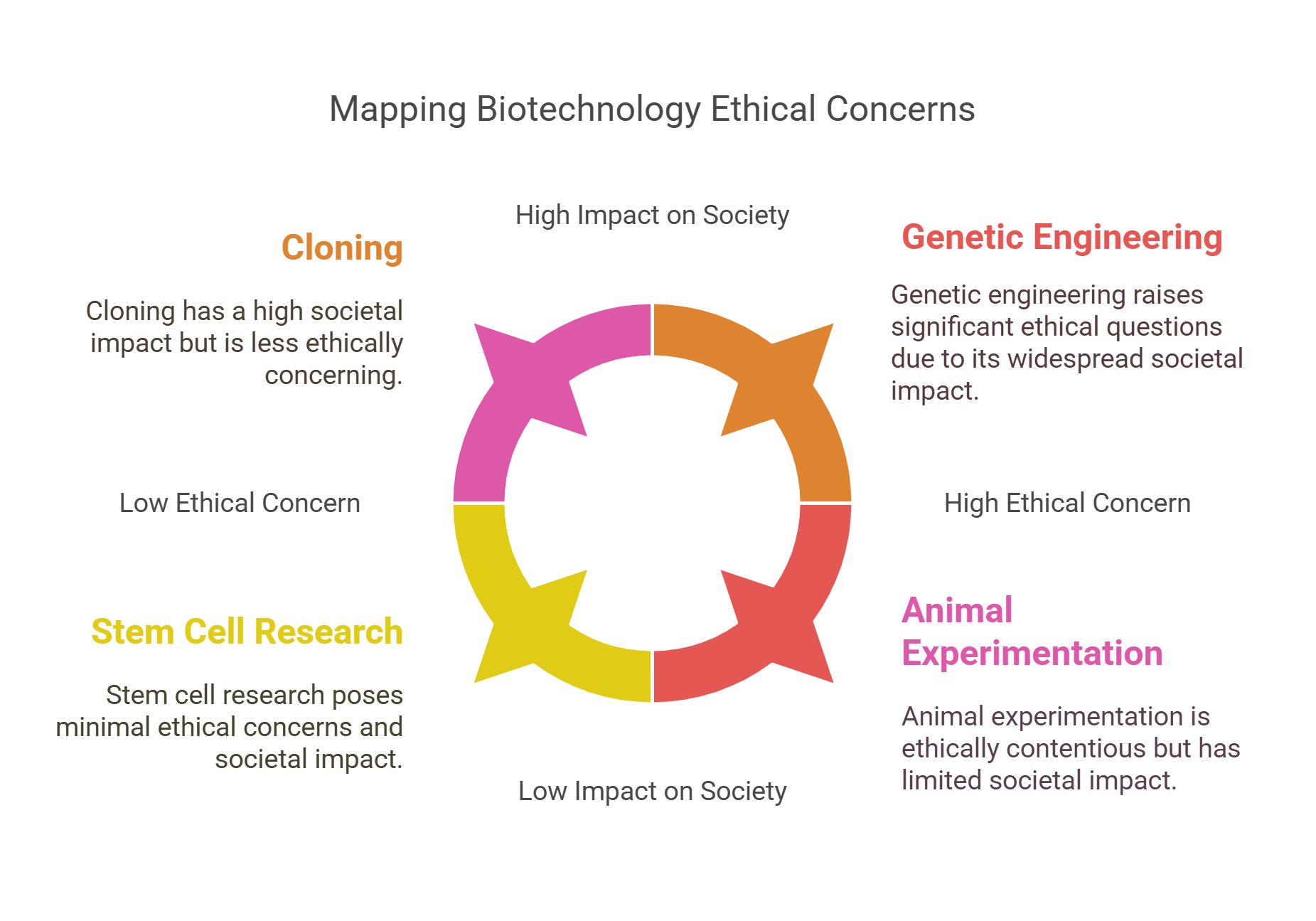
6. Moral Philosophy
Moral philosophy explores questions about right and wrong, justice, and human behavior. Different ethical theories like utilitarianism (greatest good for the greatest number) and deontology (duty-based ethics) offer frameworks for understanding complex moral issues. These ideas often underpin ethical dilemmas presented in reading passages.
- Explores what makes actions right or wrong.
- Includes theories like utilitarianism, deontology, and virtue ethics.
- Provides frameworks for ethical decision-making.
- Applies to personal, societal, and global contexts.
- Foundational for other ethical discussions.
Explained Simply: Imagine two choices: one helps many people but hurts one person, and the other helps just you but hurts no one. Moral philosophy helps us decide which is better.
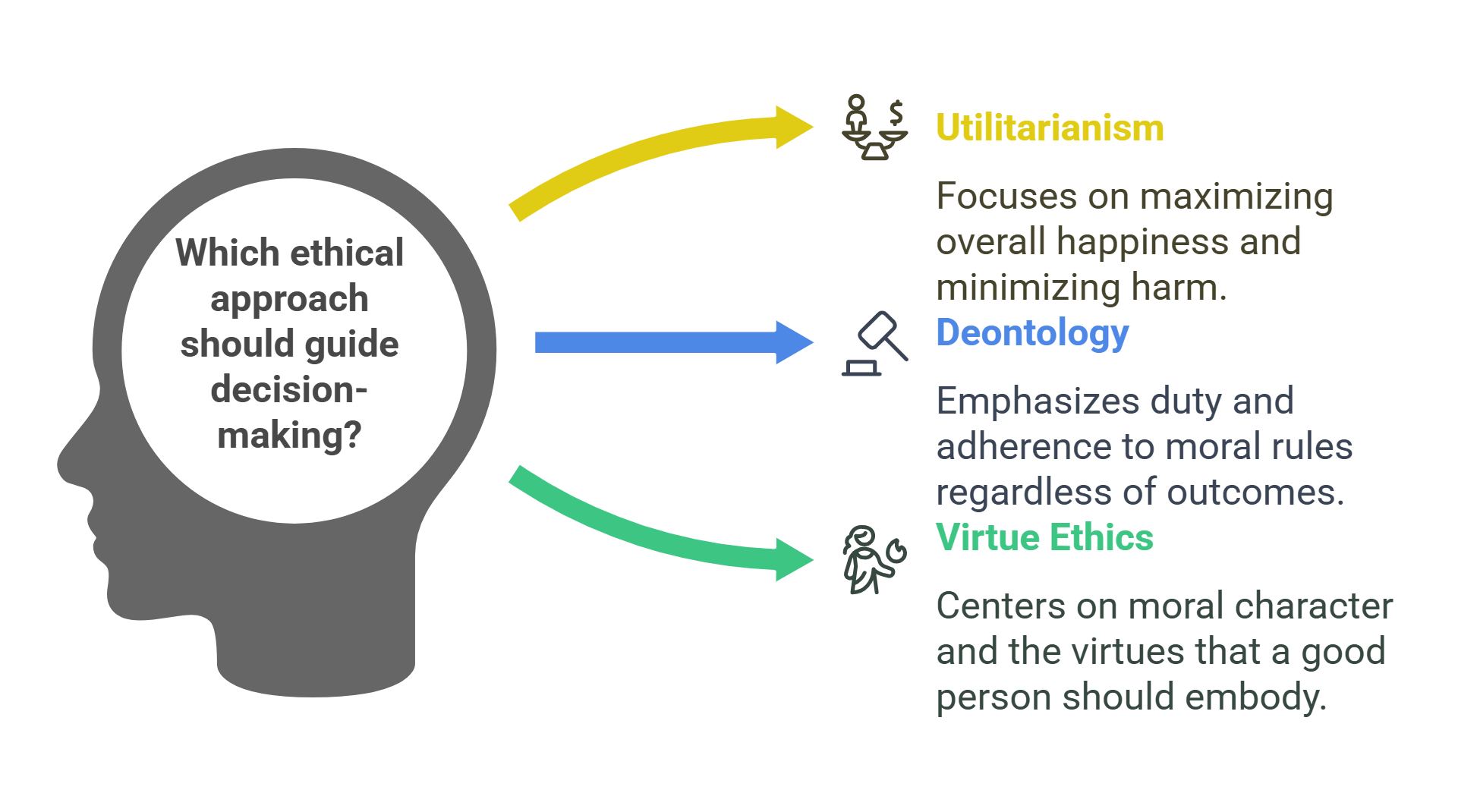
7. Bioethics
Bioethics addresses ethical issues in healthcare, medicine, and biological research. Topics include organ transplantation, end-of-life care, and genetic testing. In passages, bioethics often involves weighing individual rights against collective benefits, making it a key area for analysis.
- Focuses on ethics in medicine and life sciences.
- Includes debates on euthanasia, cloning, and organ donation.
- Balances patient rights with societal needs.
- Raises questions about access to healthcare.
- Highlights tensions between innovation and ethics.
Explained Simply: Imagine if a doctor had one medicine and two sick people. Bioethics helps decide how the doctor should choose who gets the medicine.
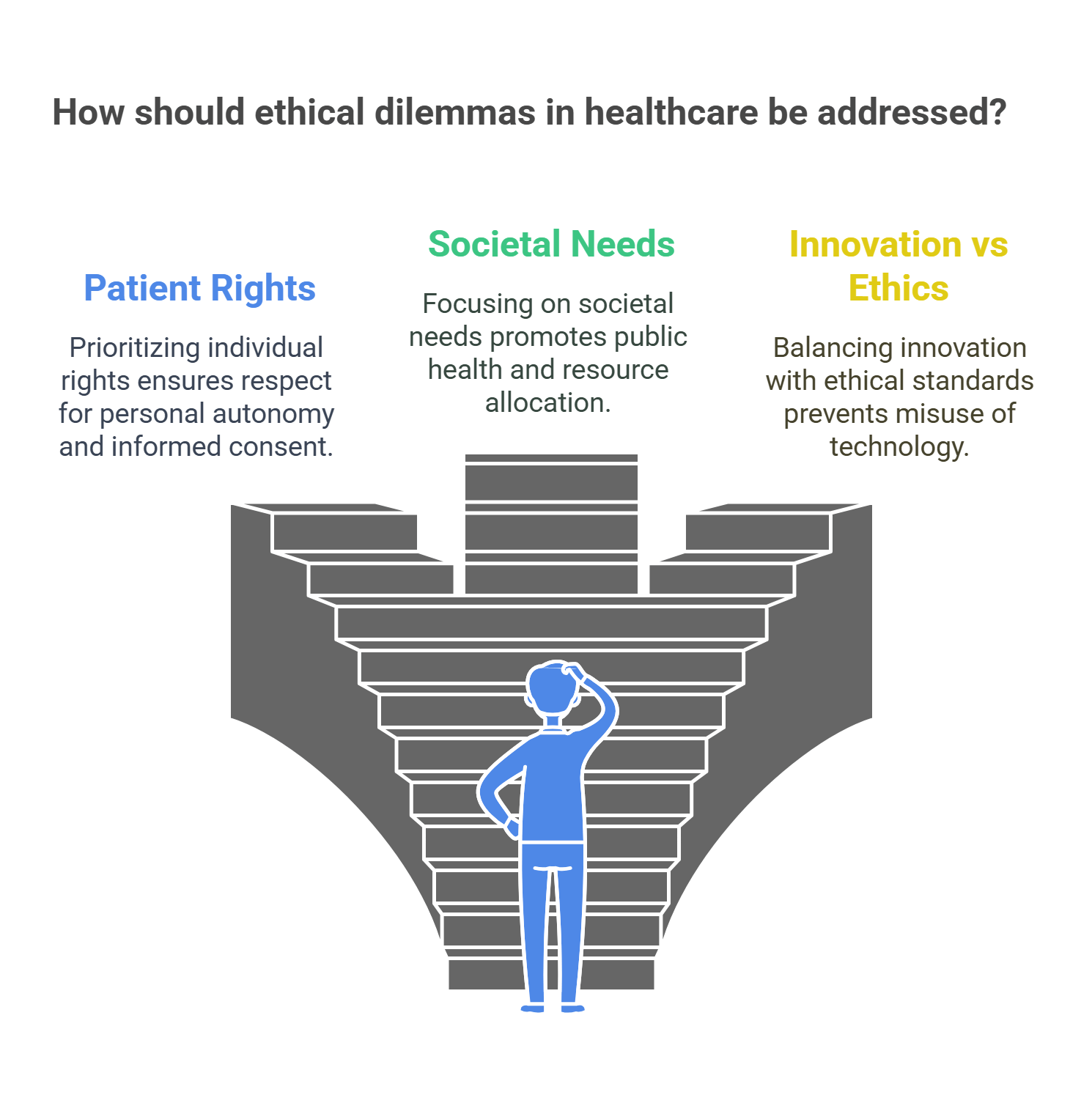
8. Professional Ethics
Professional ethics defines the standards and moral expectations for various professions, from doctors and lawyers to journalists and teachers. Passages on this topic often explore conflicts between personal values and professional responsibilities.
- Ethical standards in different professions.
- Balances personal beliefs with professional duties.
- Includes confidentiality, honesty, and accountability.
- Relevant in scandals and misconduct cases.
- Guides behavior in complex professional scenarios.
Explained Simply: Imagine if a teacher promised not to tell your secret but then shared it with others. Professional ethics means keeping promises and doing the right thing at work.
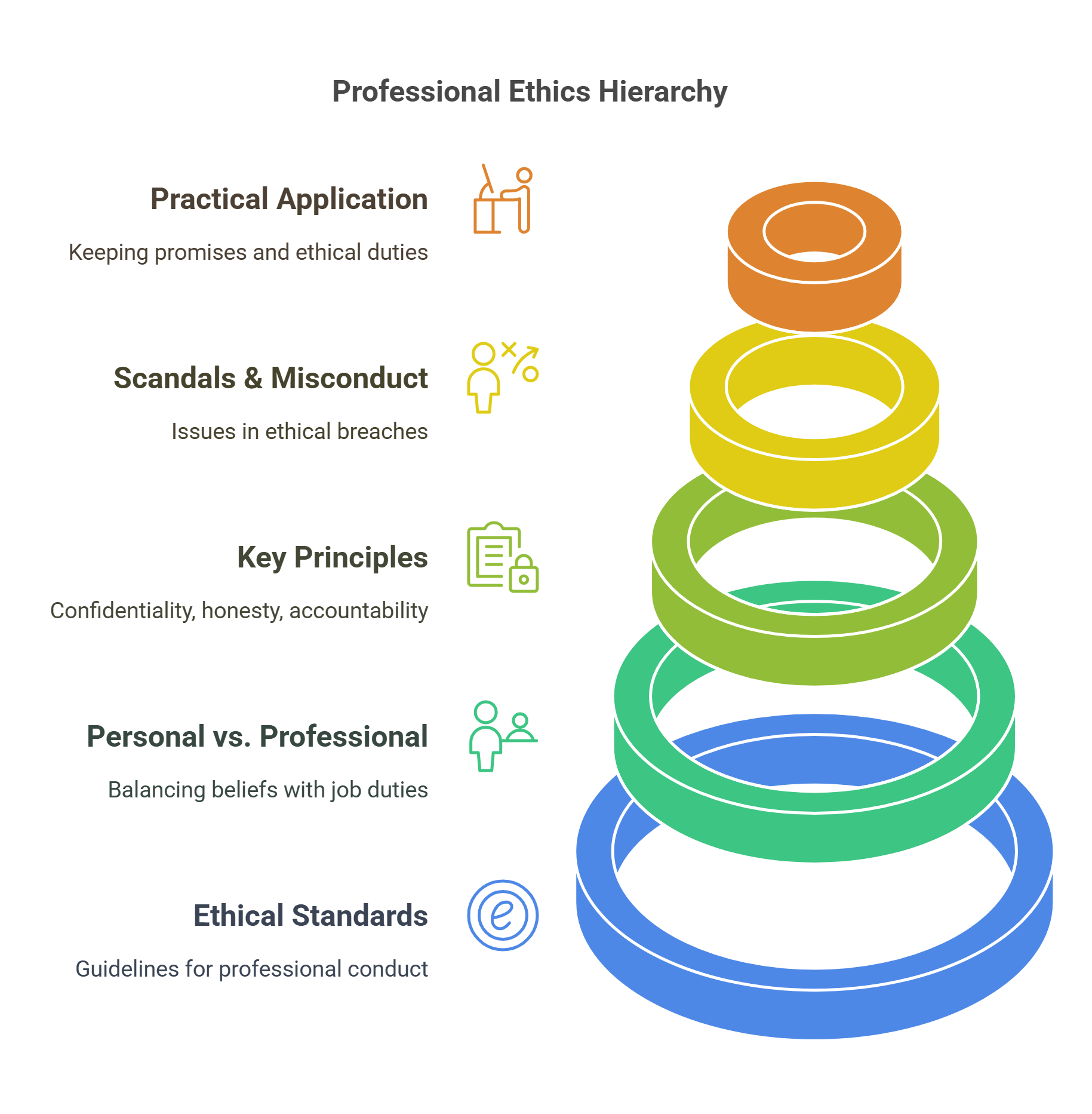
9. Social Responsibility
Social responsibility emphasizes the duty of individuals and organizations to act in ways that benefit society. It spans philanthropy, environmental protection, and community engagement. In reading passages, social responsibility often ties into broader themes of ethics and sustainability.
- Acting for the greater good.
- Includes corporate and individual responsibilities.
- Links to sustainability and community welfare.
- Relevant in debates about profit versus ethics.
- Promotes long-term societal benefits.
Explained Simply: Imagine picking up trash in a park, even if you didn’t drop it. That’s social responsibility—helping make things better for everyone.
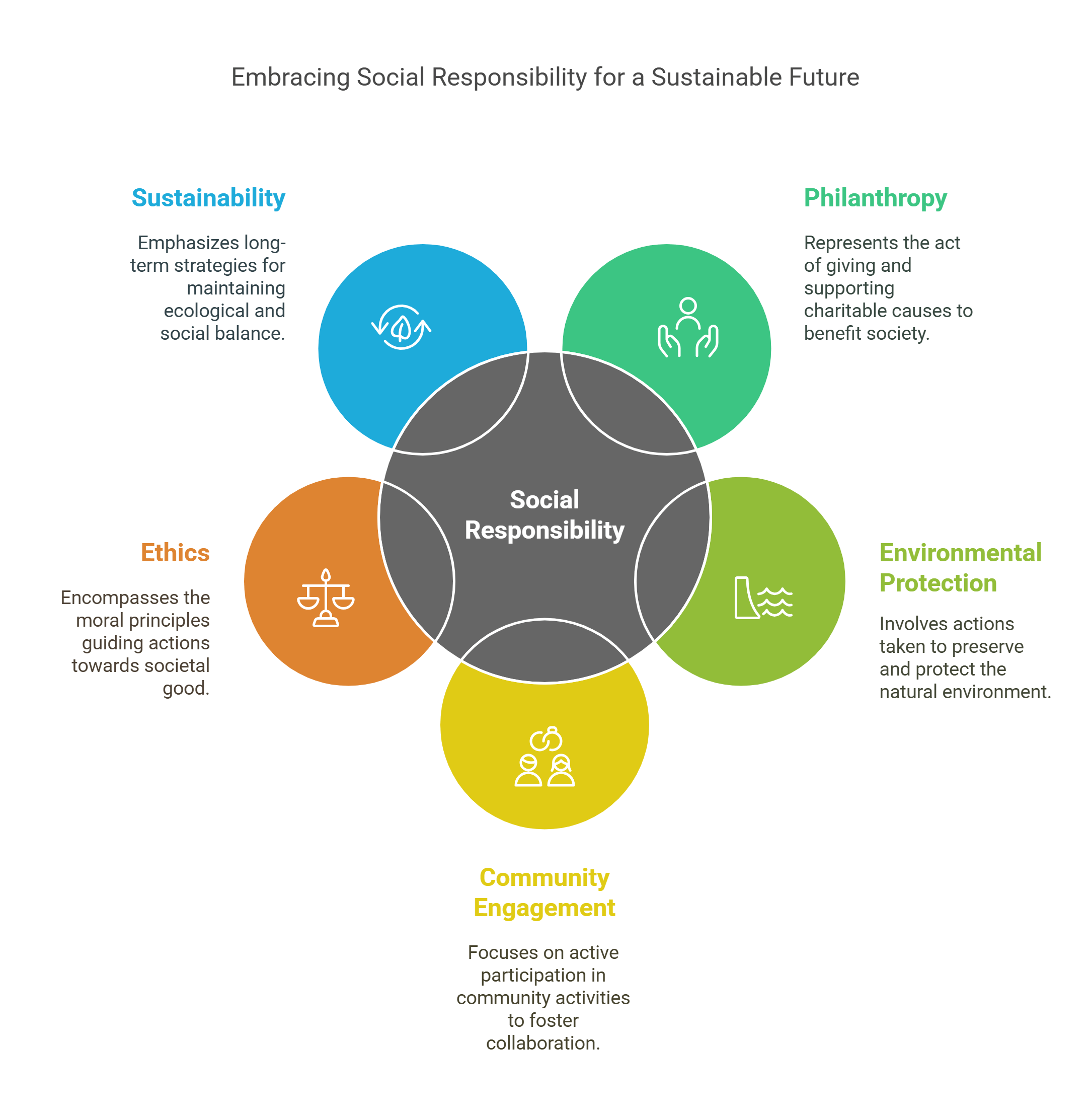
10. Ethical Dilemmas
Ethical dilemmas occur when there is no clear right or wrong choice, often requiring a decision between conflicting values. These scenarios are common in reading passages to test critical thinking and the ability to evaluate complex situations.
- Involves tough decisions with no easy answers.
- Requires balancing competing moral principles.
- Found in real-life and theoretical scenarios.
- Highlights the complexity of ethical reasoning.
- Tests critical thinking and decision-making.
Explained Simply: Imagine you have one candy, but two friends want it. An ethical dilemma is trying to decide how to share it fairly.
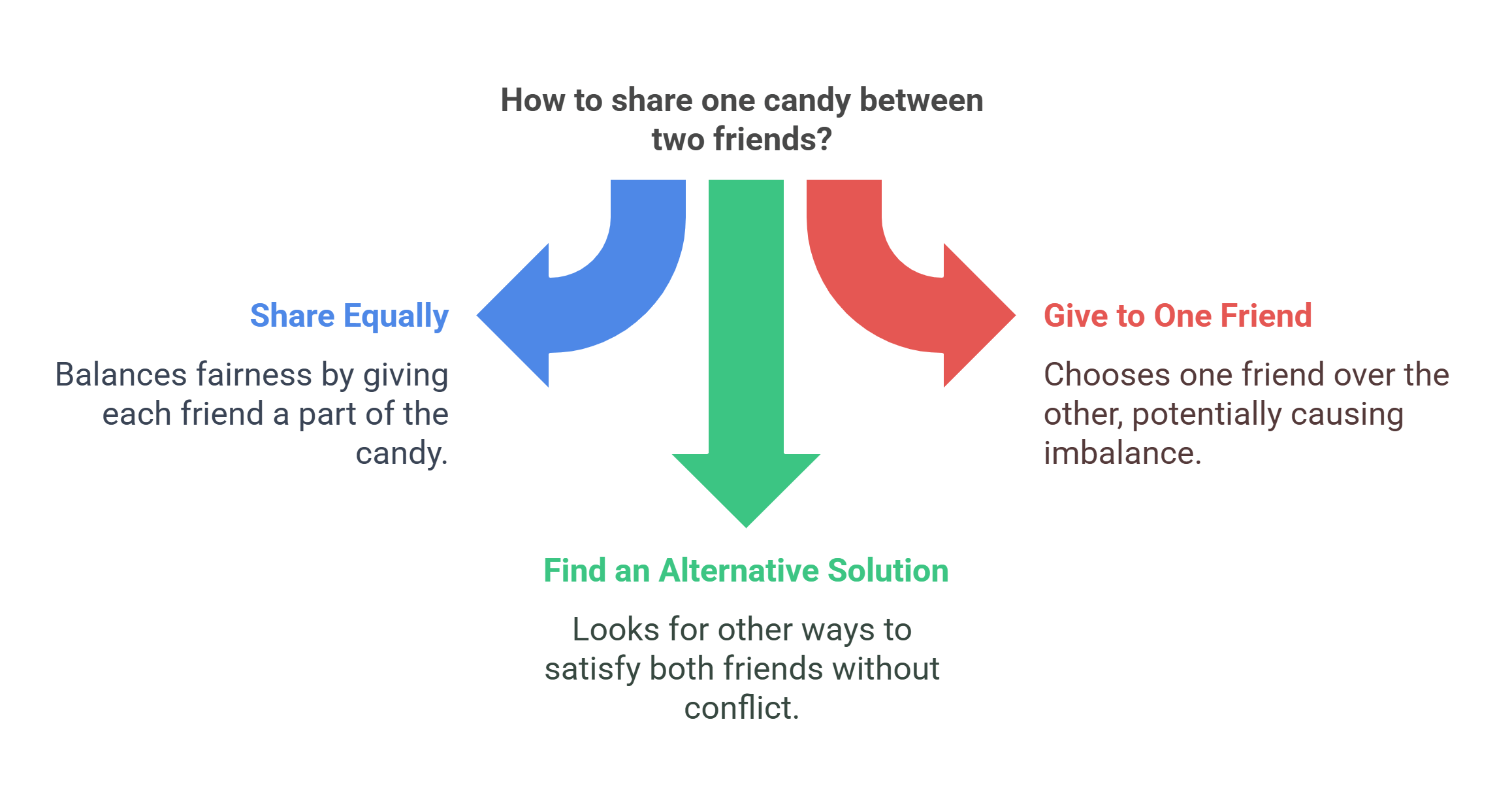
✨ Conclusion
Ethics concepts provide a robust foundation for engaging with reading comprehension passages about technology, society, and the environment. By mastering these ideas, you enhance your analytical skills and prepare to tackle the nuanced debates and dilemmas that define modern ethical discussions.













